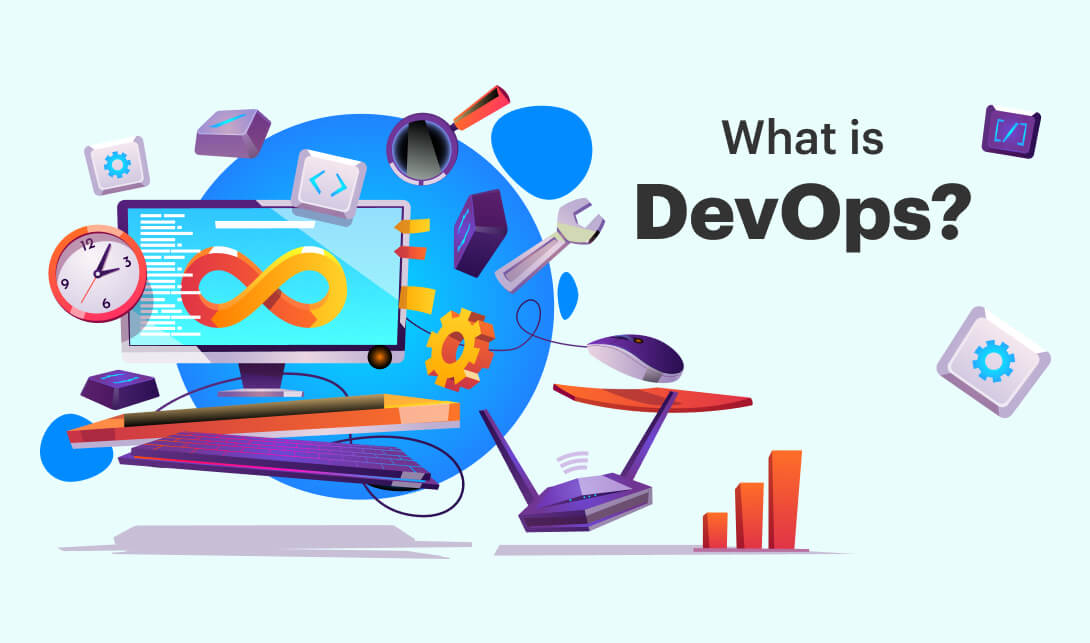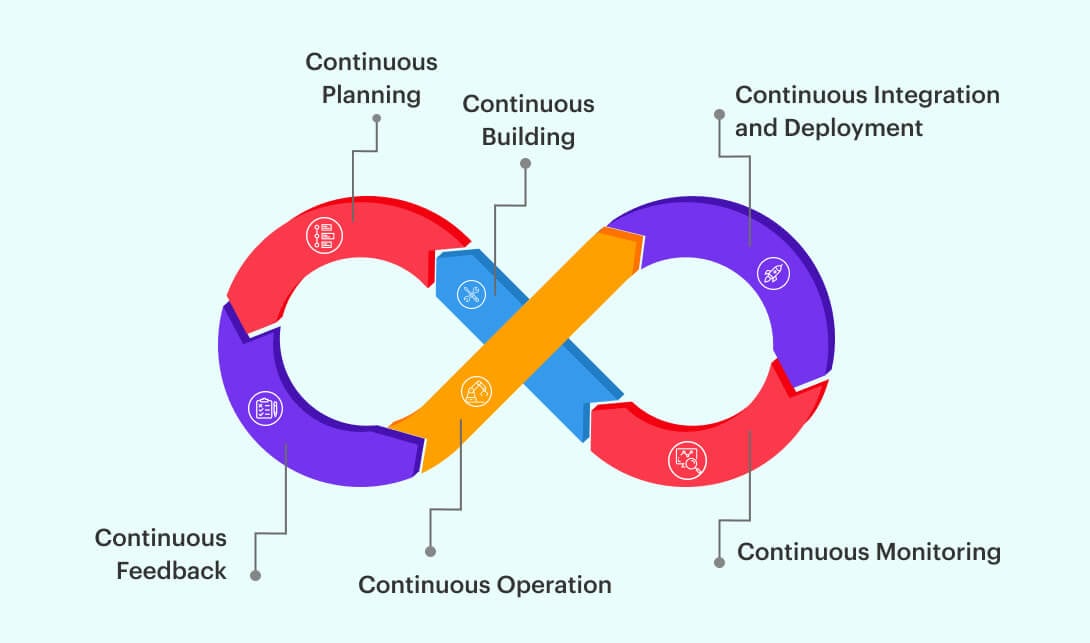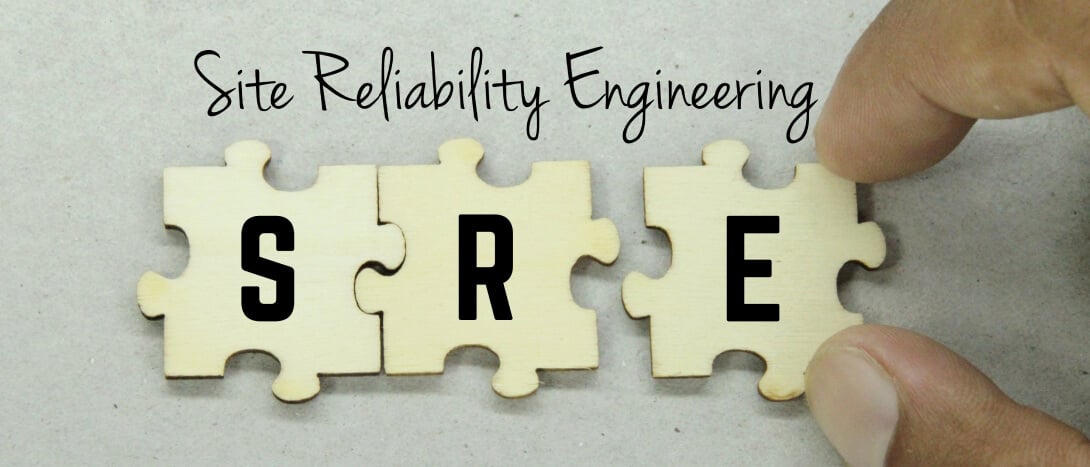Over the period, new disciplines have arisen, ensuring the implementation of the changes is efficient and systems are ready to implement these changes. Software is undoubtedly penetrating the business sector, and users’ dependence on technology constantly increases. As a result, DevOps and Site Reliability Engineering (SRE) cultures and practices have inducted themselves into the mainstream in the last few years.
DevOps engineering and Site Reliability Engineering have become one of the most sought-after job titles in the software development industry. However, unlike CI/CD, where the processes are interlinked, DevOps and SRE are different. Both allow the organizations to overcome distinct challenges with innovative and unique approaches while ushering in the new paradigms in technology.
Before the differentiating line between DevOps and SRE is drawn, let’s understand the two terms separately.
What is DevOps?

DevOps is a set of tools, practices, and cultural philosophies that allow software developers to automate and integrate the processes in the software development lifecycle. It focuses on team empowerment, cross-team communication, and collaboration, bringing the development and operation teams on the same page. The practices such as Continuous Integration, development, monitoring, and automation involved in DevOps enable the developers to swiftly deliver quality products to the end-users.
DevOps lifecycle

As a result of the continuous nature of the DevOps, the DevOps engineers use an infinity loop to demonstrate the phases of the DevOps lifecycle. Despite the sequential flow that demonstrates the DevOps lifecycle, the loop symbolizes the need for constant collaboration and regular improvements throughout the lifecycle. A typical DevOps lifecycle has six phases, namely:
- Continuous Planning
- Continuous Building
- Continuous Integration and Deployment
- Continuous Monitoring
- Continuous Operation
- Continuous Feedback
Expand your business with our offshore resources
What is SRE?

SRE or Site Reliability Engineering is a software engineering approach for IT operations. The SRE teams use the software to allow them to manage the systems, overcome challenges, and automate the task on hand.
How does SRE work?
Site reliability engineering takes tasks initially done manually and pushes them to engineers who are equipped with automation and particular software to overcome the given challenges. It is a valuable practice for developing scalable and reliable software systems. SRE helps the developers and engineers to manage large systems through code, which are more scalable and sustainable for sysadmins who are already occupied with several other tasks.
SRE vs DevOps
Since now we know the exact definition and functions of DevOps and Site Reliability Engineering, let’s focus on the main point of our discussion. What is the difference between SRE and DevOps? What are the factors that separate DevOps and SRE?
In layman language, DevOps implies writing and deploying the code to the production environment. On the other hand, SRE uses a more comprehensive approach where the teams take a more expansive approach with more ‘end-users’ perspectives while working on the system.
Working Culture
The DevOps team works on a product or software with an agile approach. They build, test, deploy, and monitor the development, keeping speed, control, and quality in mind. On the other hand, the SRE team regularly provides the developers with the feedback upon which the development team works. The main goal of the SRE team is to leverage operational data and software engineering mainly by automating IT operations tasks.
Pursuing CI/CD Practices
DevOps is considered a massive advocate for automation. It is common to say that automation is the second most crucial aspect of DevOps after culture. Many activities happen after a developer commits the code, and most of these activities can—and should—be automated. In this process, the main agenda is to automate as many processes as possible and make product releases faster.
Whereas SRE pursues CI/CD for different reasons altogether. It focuses on cost reduction by avoiding failures. In Site Reliability Engineering, all the standard and tedious tasks such as deployments, application restarts, and backups aren’t appealing. For this reason, the SRE reserves approximately 50% of the time for reducing the toil or operational work.
Failure Acceptance
DevOps roles and responsibilities allow the developers to foster a blameless culture. Every time something goes wrong, it is a learning experience for the DevOps engineers. Instead of putting too much effort into making the system completely fault-tolerant, a DevOps culture finds a way to overcome the faults. One such use case for fault tolerance is Netflix with Simian Army. Netflix is continuously bringing part of its system down so that it’s just regular business when a genuine fault comes. If a set of servers goes down in a zone, Netflix automates recreating servers in a different zone.
SRE practices blameless postmortem every time a failure in the system happens. The idea of blameless postmortems is to identify what caused the fault, then find ways to avoid having the same loss happen again in the same way.
After defining the SLI, SLO, and SLA, SRE determines how much failure is acceptable (the budget) because it’s expensive to be 100% available. And in some cases, it’s not possible. SRE also accepts failures, but they put numbers to it—they call it the error budget.
Essence
DevOps is a collection of philosophies that enable culture and collaboration between siloed software development teams.
SRE was developed with a narrow focus, that is, to create a set of practices and a matrix that allows for improved service and product delivery.
Conclusion
The difference between DevOps and SRE is marginal. With the slight distinction, in essence, focus, goals, and work ethics, the two approaches pick up two different routes in the software development industry. Commenting on which practice is better, DevOps or SRE entirely depends on the product’s nature, operations, and functionality. So if someone is looking to hire a DevOps engineer or a site reliability engineer, they must first ensure that they have a clear understanding of the outcome of the product.








